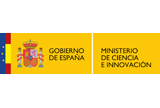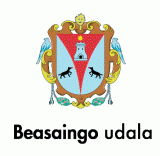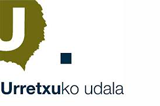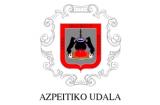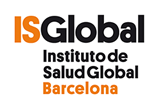Search
Protocolos
a:7:{s:8:”location”;a:7:{i:0;a:1:{i:0;a:3:{s:5:”param”;s:4:”page”;s:8:”operator”;s:2:”==”;s:5:”value”;s:4:”2635″;}}i:1;a:1:{i:0;a:3:{s:5:”param”;s:4:”page”;s:8:”operator”;s:2:”==”;s:5:”value”;s:4:”5049″;}}i:2;a:1:{i:0;a:3:{s:5:”param”;s:4:”page”;s:8:”operator”;s:2:”==”;s:5:”value”;s:4:”5061″;}}i:3;a:1:{i:0;a:3:{s:5:”param”;s:4:”page”;s:8:”operator”;s:2:”==”;s:5:”value”;s:4:”5073″;}}i:4;a:1:{i:0;a:3:{s:5:”param”;s:4:”page”;s:8:”operator”;s:2:”==”;s:5:”value”;s:4:”5084″;}}i:5;a:1:{i:0;a:3:{s:5:”param”;s:4:”page”;s:8:”operator”;s:2:”==”;s:5:”value”;s:4:”5095″;}}i:6;a:1:{i:0;a:3:{s:5:”param”;s:4:”page”;s:8:”operator”;s:2:”==”;s:5:”value”;s:4:”5109″;}}}s:8:”position”;s:6:”normal”;s:5:”style”;s:7:”default”;s:15:”label_placement”;s:3:”top”;s:21:”instruction_placement”;s:5:”label”;s:14:”hide_on_screen”;a:15:{i:0;s:9:”permalink”;i:1;s:11:”the_content”;i:2;s:7:”excerpt”;i:3;s:13:”custom_fields”;i:4;s:10:”discussion”;i:5;s:8:”comments”;i:6;s:9:”revisions”;i:7;s:4:”slug”;i:8;s:6:”author”;i:9;s:6:”format”;i:10;s:15:”page_attributes”;i:11;s:14:”featured_image”;i:12;s:10:”categories”;i:13;s:4:”tags”;i:14;s:15:”send-trackbacks”;}s:11:”description”;s:0:””;}
INMA: “A European study combines novel population-based molecular genetic methods to investigate associations with sleep duration in children”
Sleep duration is an indicator of sleep need and overall well-being. The effects of sleeping insufficient or excessive hours have already been widely studied, having found strong associations with a variety of medical and psychosocial problems. However, what are the biological mechanisms behind these associations? It is still unknown whether common genetic variants in individuals explain to some extent sleep duration in children, and whether these genetic variants indicate a biological mechanism, which reveals the role of sleep duration in health and disease. To address this issue, a Genome-Wide Association Study was performed, in combination with novel population based-molecular genetic methods. The authors evaluated the association and heritability of genetic variants with sleep duration, as well as their relationship with metabolic and psychiatric traits. Children aged 2 to 14 years were included in the study. The discovery phase consisted of five European cohorts: one from United Kingdom, one from Germany, one from the Netherlands and two from Spain. Among them, the Sabadell, Valencia and Menorca INMA cohorts were included. The replication phase consisted of two additional cohorts: one from Finland and another one from the Netherlands. This study was the largest to date with genetic data using these methods. The study identified a novel chromosome region (11q13.4) associated with sleep duration, however, this discovery was not replicated in the posterior phase, i.e., it was not detected when analyzing the same association in the other two cohorts. The study also observed a moderate heritability of the sleep duration in children. Finally, this study found evidence for an association between sleep duration and type 2 diabetes, which could suggest a common pathogenic mechanism. According to the authors, the number of participants in the replication phase was probably small to confirm the discovery of the new chromosome region. In this type of studies, it is very important to consider a great number of participants to observe associations and to replicate results in other populations to confirm the findings. This study gives input to new genetic research about sleep duration in children, to unravel the genetic mechanisms associating sleep duration with health. Reference: Marinelli M, Pappa I, Bustamante M, Bonilla C, Suarez A, Tiesler CM, Vilor-Tejedor N, Zafarmand MH, Alvarez-Pedrerol M, Andersson S, Bakermans-Kranenburg MJ, Estivill X, Evans DM, Flexeder C, Fons J, Gonzalez JR, Guxens M, Huss A, van IJzendoorn MH, Jaddoe VW, Julvez J, Lahti J, López-Vicente M, Lopez-Espinosa MJ, Manz J, Mileva-Seitz VR, Perola M, Pesonen AK, Rivadeneira F, Salo PP, Shahand S, Schulz H, Standl M, Thiering E, Timpson NJ, Torrent M, Uitterlinden AG, Smith GD, Estarlich M, Heinrich J, Räikkönen K, Vrijkotte TG, Tiemeier H, Sunyer J. Heritability and Genome-Wide Association Analyses of Sleep Duration in Children: The EAGLE Consortium. Sleep. 2016 Oct 1;39(10):1859-1869.
Collaborating bodies
Funding bodies
Institutions involved
Legal Notice
LEGAL NOTICE & CONDITIONS OF USE OF THE WEBSITE Owner of the website and the application: Fundación Privada Instituto de Salud Global Barcelona (ISGlobal) The website is the property of ISGlobal. Use of the website is subject to the following conditions of use. Please read them carefully. Accessing the website and using its content implies that you have read and accepted, without reservation, these conditions. 1.1. The website contains content prepared by ISGlobal solely for informational purposes. This content may not reflect the most up-to-date information on the matters addressed. Likewise, this material may be amended, extended or updated without notice. 1.2. You accessing this content does not create or imply any professional or trust relationship between ISGlobal and you. 1.3. The links on the website may take you to other websites, pages or applications managed by third parties over which ISGlobal has no control. ISGlobal is not responsible for the content or the state of these websites, pages and applications. Being able to access them via our website or application does not imply that ISGlobal recommends or approves their content. 2.1. You use our website at your own risk and expense. ISGlobal is not responsible for any errors or omissions in the content of the website, the application or any other sites you may access via the website or the application. ISGlobal is not liable for any damage arising from the use of our website or any action performed based on information provided on our website. 2.2. ISGlobal does not guarantee the absence of viruses or other harmful elements that could damage or alter your IT system, electronic documents or files on our website. As a result, ISGlobal does not accept any liability for any loss or damage that such elements could cause to you or a third party.
CIF: G65341695
Postal address: C/ Rosselló, 132, 7ª – 08036 Barcelona
Registered in the Foundations Registry of the Directorate General of Law and Legal Entities of the Government of Catalonia under number 2,634
Email: lopd@isglobal.org1. Conditions of use
2. Limitation of liability
[Updated on March 11, 2020]
Privacy Policy
In accordance with the current data protection regulations, ISGlobal informs you of the following: When you are requested to provide personal data for the provision of services, you will be informed of what data you must provide. If you do not provide this required data, we will not be able to provide you with the services. The personal data you provide or that ISGlobal obtains as a result of your browsing, queries or requests via our webpage at www.proyectoinma.org (the “website”) will be included in a file owned by ISGlobal for managing, storing and tracking your requests for information and/or contracting of goods or services offered via the website. The information obtained from you by ISGlobal from the website when you sign up for a promotional event or send a form is processed with the utmost confidentiality for helping you to take part in the event in question or, in the second case, sending you the information you requested. The information obtained is not used for any other purpose. The personal data provided will not be disclosed or transferred to third parties without your consent. When the completion of a form is requested, the user will be informed of the identity and data of the data controller and the Data Protection Officer, the purposes and legal basis of the treatment, the recipients of the data as well as, where appropriate, the international data transfers, the data retention periods and the user’s ability to exercise their rights of access, rectification, deletion, portability, limitation and / or opposition to treatment, the right complaint to the control authority and the existence of automated decisions. The personal data collected will only be processed and / or transferred for the express purpose, and always with the consent of the user. Information is only sent via the form(s) of the website after you have expressed your acceptance by selecting an “ACCEPT/SEND” (or similar) button, via which ISGlobal has proof that you gave your consent for it to process your personal data. In all cases, you guarantee that the data you provide is true, exact, complete and up-to-date. ISGlobal may decline to provide the information or services requested to any user providing false data without prejudice to any other legal action open to it. In virtue of Article 22 of Spanish Law 34/2002, of July 11, on the Information Society Services and Electronic Commerce, ISGlobal may store and retrieve “cookies” (data in a text file) from your machine, provided you have given consent and after we have provided you with clear and complete information on the use of these cookies. You may obtain complete information on the purpose for installing these cookies and what they are used for in Cookies Policy. This does not prevent any technical storage or access for the sole purpose of carrying out or facilitating the transmission of a communication over an electronic communications network, or as strictly necessary to provide an information society service expressly requested by you. You may exercise your rights of access, rectification, erasure, objection, portability and restriction of the processing by sending a request to the Data Protection Officer via email (lopd@isglobal.org) or the ISGlobal postal address: c/ Rosselló, 132, 08036 Barcelona, Spain. The request must include your full name, address for notices, a photocopy of your ID document or passport and an indication of the right you want to exercise. If you are unhappy with the processing done by ISGlobal or believe that your rights have been violated, you may file a claim with the Spanish Data Protection Agency at any time (www.aepd.es – C/ Jorge Juan, 6, Madrid). ISGlobal has implemented the necessary technical and organizational security measures in order to guarantee the security of your personal data and prevent its alteration, loss, treatment and / or unauthorized access, considering the state of technology, the nature of the stored data and the risks to which they are exposed, whether they come from human action or the physical or natural environment, all in accordance with the provisions of current regulations. In accordance with Law 34/2002, of 11 July, on the Services of the Information Society and Electronic Commerce, if you do not wish to receive electronic commercial notices from ISGlobal in the future, you may inform us of this preference by sending an email to the Data Protection Officer (lopd@isglobal.org) [Updated on March 11, 2020]
Gipuzkoa
In May 2006 the INMA project was set up in Gipuzkoa with the aim of evaluating the role of the environmental pollutants present in the air, water and diet in the growth and development of the children. The incorporation of the women to the cohort was made coinciding with the first echography of pregnancy control. Biological samples were taken (blood, urine, hair, placenta, etc.) and a series of questionnaires were complimented (general, diet, labour, environmental, etc.) to evaluate the impact of the environmental pollutants present in the air and the water of consumption, as well as an estimation of the polluting agents contributed by the diet. The mothers were recruited from population visiting at the Hospital of Zumarraga, which includes the municipalities of the Goierri and the Alto and Medio Urola. They were selected of this area because of the characteristics of the services of the hospital and primary attention centre, as well as by the environmental characteristics: hard presence of metallurgical industry, high density of traffic, low levels of products derived from the disinfection in the consumption water and a rich diet in fish, together with certain degree of hypothyroidism in the pregnant women. Since then, the pursuit of 640 women has been made in first and the third trimester of pregnancy. At the moment the pursuit is being made of 623 children in aspects of growth and neurobehavioural development. This study was funded by grants from Instituto de Salud Carlos III (FIS-PI06/0867, FIS-PI09/00090, FIS-PI13/02187 and FIS-PI18/01142 incl. FEDER funds), CIBERESP, Department of Health of the Basque Government (2005111093, 2009111069, 2013111089 and 2015111065), and the Provincial Government of Gipuzkoa (DFG06/002, DFG08/001 and DFG15/221) and annual agreements with the municipalities of the study area (Zumarraga, Urretxu , Legazpi, Azkoitia y Azpeitia y Beasain).
Funders of INMA-Gipuzkoa cohort:
Collaborating Entities:
Asturias
The Unit of Molecular Epidemiology of the University Institute of Oncology of the University of Oviedo initiated in 2004 in Asturias one cohort of new born children, at the 12th week of pregnancy, of the population of Sanitary Area III. The objective was to study the paper of the environmental exposures in the children’s development (neurobehavioural and anthropometric) and health (mainly respiratory), in the frame of the INMA (Childhood and Environment) network, a project financed by the Institute of Health Carlos III. It is an observational study of cohorts that follows pregnant women of the general population from the first trimester to the childbirth and their children from the birth to the adolescence. The women had to be resident in Area III of Asturias, with age equal or over 16 years, and they were recruited between 2004 and 2006. Other criteria of inclusion were: unique pregnancy, no problems for a fluent communication, and not to suffer any chronic disease. The Sanitary area III of Asturias includes the councils of Avilés, Corvera, Castrillón, Gozón, Cudillero, Pravia, Paredes de Nalón, and Soto del Barco, with their primary attention centre in the Hospital San Agustín de Avilés. The area is particular because of a high level of industrialisation that has offered a good opportunity to create one cohort from the pregnancy: the size of population allowed to recruit in 2 years the number of required pregnant women; the integration of its sanitary structure enabled that all the pregnant women attended the same centre of secondary attention for the first visit and echography a and an only hospital for the childbirth. The recruited cohort presents characteristics common of the pregnancies in our surroundings (average age 31.82 years, occupation during the pregnancy 70.51%, smoking in the third trimester of pregnancy 17.76%), although the participants had a certain selection towards one better education and social support that the average: education superior to the primary one 81.85%, biparental family at the birth of the child 99.38%. Nevertheless the variability in the exposures, both contamination and diet, assures that it is a contextual frame of great value for the proposed study. Collected data includes individual exposure to atmospheric contamination during pregnancy, intrauterine and post-birth growth, mental development to the year and a half, and diet and nutrients during the pregnancy and to the year and a half of age. Blood of the mother, cord blood and maternal milk were also taken. The pursuit to the 18 months of age is being completed, with an answer of 92%.
Entidades Colaboradoras:
Sabadell
In the city of Sabadell, all the women who attended the pregnancy care program and who had an ultrasound of their first trimester of pregnancy at CAP II Sant Felix (the only specialized primary care center in Sabadell the city) between July 2004 and In July 2006, they were invited to participate in the INMA study. A total of 657 women were included, who were followed in each trimester of pregnancy until the time of delivery at the Hospital de Sabadell (Corporació Sanitària Parc Taulí) which covers the entire population of Sabadell, acting as a specialized hospital of consultation and reference for. part. An additional round of hiring pregnant women was held between May 2007 and July 2007, but directly when they went to give birth at Sabadell Hospital. A total of 120 women were included in this second phase. Over the years, this group of children from the city of Sabadell have been evaluated approximately every 2 years, thanks to the predisposition of their families: that is, at 6 and 14 months, at 2, 4, 7, 9, 11 and 14 years. In July 2023 we have started the 18 years visit, and it is wonderful to acknowledge the valuable selfless collaboration of these young people, thanking them for their participation and commitment. Thank you for being part of this journey towards a brighter future. How do we treat your personal data and the biological samples we collect? The data are treated with absolute confidentiality and in accordance with Regulation (EU) 2016/679 of the European Parliament and of the Council, of April 27, 2016, relating to the protection of individuals with regard to the processing of personal data and to the free circulation of this data and to Organic Law 3/2018, of December 5, on the protection of personal data and the guarantee of digital rights. Personal data will be kept as long as the research project or successive projects within the same line of research is active, in this way your data may also be used by other projects / research within the area of the present project , or in global health research projects, both in infectious and non-communicable diseases, and environmental health, to study the effect of environmental factors on people’s health. Biological samples are treated in accordance with current legislation (Law 14/2007 on biomedical research, and Royal Decree 1716/2011 regulating the use of biological samples for research). The samples are stored in the ISGlobal biobank, at Campus Mar (Barcelona Biomedical Research Park) and are included in collection C.0001626 included in the Registry of Collections of the Instituto de Salud Carlos III. These are only used in research projects directly related to the INMA Project and with the aim of studying biomarkers related to the effect of environmental factors on health. Finally, if you decide to withdraw your consent to participate in this study, no new data will be added to the database from the date you inform us that you decide to withdraw, and only the data obtained up to that time will be retained, to ensure the validity of the research. You can also request that the identifiable biological samples obtained so far be destroyed, so that no further analysis can be carried out.
Collaborating Entities
Processing of Data and Samples:
The data of the INMA-Sabadell birth cohort collected in the context of the INMA Project are kept at the Institut de Salut Global Barcelona (ISGlobal)
– Responsible for the Treatment: Private Foundation Instituto de Salud Global Barcelona (ISGlobal)
– CIF: G65341695
– Postal address: Carrer Rosselló, number 132, 2ª, 5ª and 7ª in Barcelona (08036)
– Telephone: (+34)932271806
– Data Protection Delegate, contact: lopd@isglobal.org
Health data is kept separate from personal data. Data dissociation means that your health information cannot be associated with you as your personal data is replaced by a numeric code. Dissociated information is archived for use by project researchers and their research partners. All the results of the study are presented in a database of the group of participants, data is never presented individually.
You are responsible for the veracity and correctness of the data you provide us and you have the right to exercise the rights of access, rectification, deletion, limitation of treatment, portability and opposition of your data in accordance with what has the regulations on data protection. To exercise them, you must write to the Data Protection Officer at lopd@isglobal.org and you must attach a photocopy of your national identification document or the equivalent. In addition to the possibility of exercising your rights, if you do not agree with the treatment carried out by the Entity or if you consider that your rights have been infringed, you can submit a claim at any time to the Spanish Data Protection Agency.
The data obtained from the use of these samples will be treated in the same way as the rest of the data obtained in this study.
The provision of biological samples for this study is free and voluntary. This assumes that you will have no rights to potential commercial benefits from discoveries that may result from the biomedical research.
62 / 128


